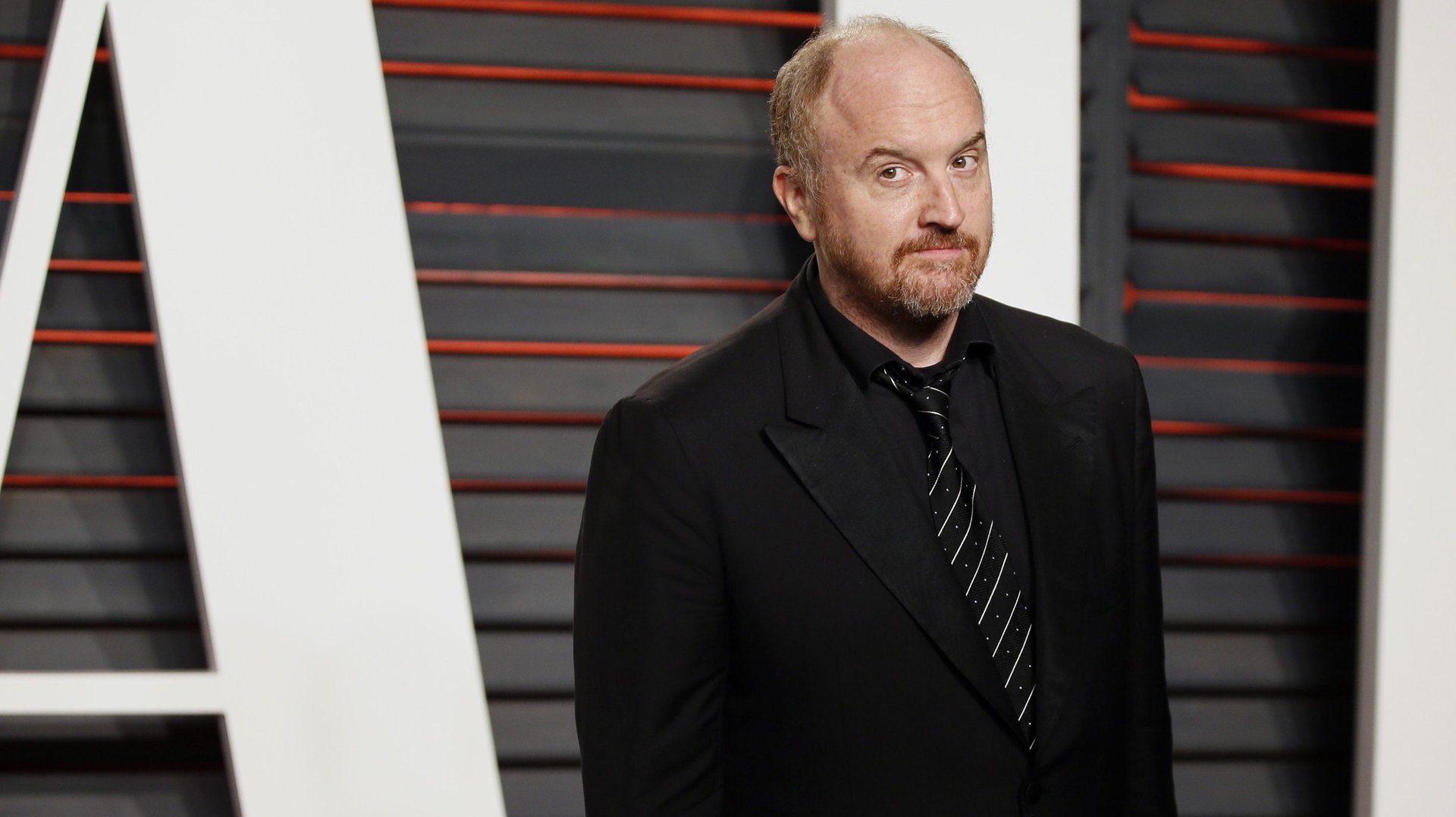Louis CK’s comedy is the perfect introduction to Buddhism
One of Louis CK’s funniest bits on death is featured in his Live at the Beacon Theatre comedy special, filmed in the fall of 2011. He begins by estimating the crowd size, which he places at about 2,500 people. “That’s a lot of people. That’s enough people to be like a sample of the population,” he says. “There’s enough people here to say that, within two months, at least one of you will die.”


One of Louis CK’s funniest bits on death is featured in his Live at the Beacon Theatre comedy special, filmed in the fall of 2011. He begins by estimating the crowd size, which he places at about 2,500 people. “That’s a lot of people. That’s enough people to be like a sample of the population,” he says. “There’s enough people here to say that, within two months, at least one of you will die.”
The joke is classic Louis CK, who often weaves the inevitability of death into his material. The edge this dark comedy has is in its precision, says Buddhist scholar Christopher Kelley, who teaches at the New School and Brooklyn College in New York. “We need that specificity to puncture our illusions about our own mortality,” he told an audience attending a recent public lecture about how dark comedy like Louis CK’s often mirrors Buddhist realism.
Speaking as part of the Think Olio series, in which college professors give evening lectures that anyone can attend, Kelley laid out his thesis: That both dark comics and Buddhist teachings engage with the conditions of life that we tend to deny, namely three of the four awakening sights that, in the stories of Buddha’s human life, lead to the young man’s spiritual quest: old age, sickness, and death. As such, this comedy, like Buddha’s noble truths, help us deal with sometimes awkward or terrifying situations in our own lives and learn to accept them—to laugh at them, even.
“I’m not saying that Louis CK is some kind of crypto-Buddhist,” Kelley explained, but he sees the comedian’s act as a subversion of a culture that keeps us distracted and protected from recognizing dukkah, a Buddhist concept that’s often translated as suffering, or anguish. As he told Tricycle Magazine:
The Buddha diagnosed the root cause of human suffering (dukkha) as our own compulsive tendency to cling to unreal ideas about ourselves and the world we inhabit. I think dark comedy offers a kind of disruptive therapy for our anxieties about life by using humor to reveal the profound incongruence between the way we think the world should be and the way the world actually is.
Once he mentions it, it’s easy to see dukkha cropping up in Louis CK’s worldview:
Other dark comics linger on dukkha, too. Kelley points to Tig Notaro, for instance, who made a unforgettable routine out of her cancer diagnosis in 2012.
But Louis CK is the most consistently and often uncannily Buddhist in its point of view, although he isn’t religious—he has said he doesn’t know if there is a God, and was raised by a Catholic mother and a father who converted to Judaism after divorce. His jokes are meditations on the unreliability of the aging body; the despair of being a widow who has to “walk home from D’Agostino’s with heavy bags every day and wait for your turn to be nothing”; and his selfishness (and ours) for living in luxury while millions are hungry.
One key to Buddhist thought, Kelley said: life moves in rising and falling waves of sukkha (pleasure) and dukkha—which is a lot like Louis CK’s take on dating after divorce.
“It’s hard to look at someone and go, ‘hey, maybe something nice will happen!’ Because I know even if it’s nice, it’s going to lead to shit,” the comedian says.
Kelley also selected this entire scene from an episode of season four of Louie on FX, in which the self-referencing character Louie meets a neighbor who Kelley says could be a typical Buddhist guru. “He says harsh things, but they offer spiritual teachings.”
In his new Netflix special, Louis CK returns to this dating motif in a perfect sukkah-dukkah one-liner:
“Love is the best,” he says. “But don’t be greedy and expect it to last.”